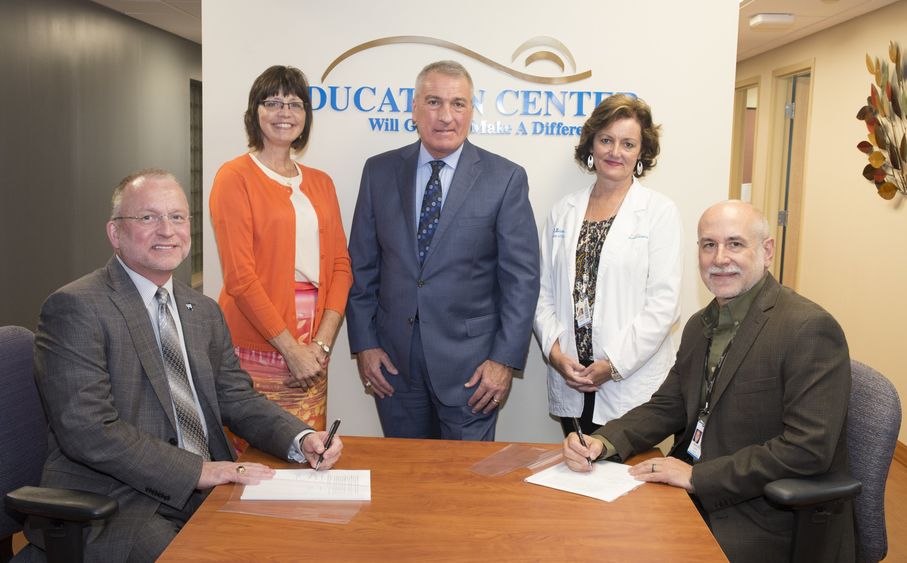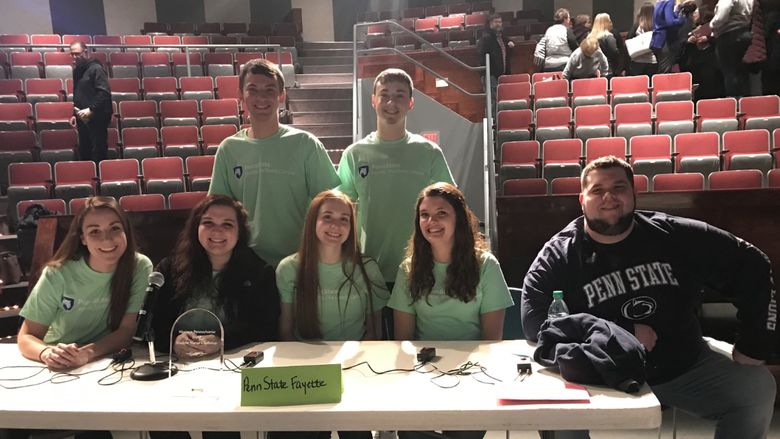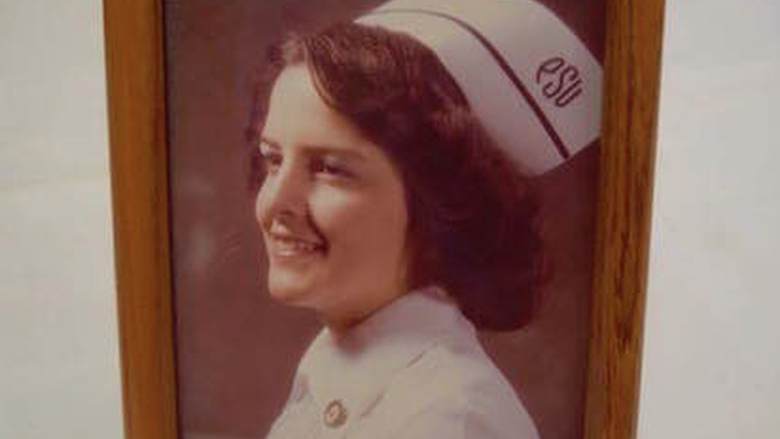
From left to right: Charles Patrick, chancellor and chief academic officer, Penn State Fayette; Melissa Miner, campus coordinator for nursing, Penn State Fayette; Dean Julian, director of enrollment management, Penn State Fayette; Tammy Henderson, director of education, Uniontown Hospital; and Steve Handy, chief executive officer, Uniontown Hospital.
LEMONT FURNACE, Pa. — Penn State Fayette, The Eberly Campus began offering an RN-to-BSN accelerated degree completion program at Uniontown Hospital this fall.
The partnership marks a homecoming, as Penn State Fayette once delivered general education courses in the hospital’s diploma nursing program until transitioning to an on-campus associate of science in nursing degree program in 1994.
In late spring, Uniontown Hospital sought to support full-time nursing staff with an on-site registered nurse to bachelor of science in nursing (RN-to-BSN) completion program, inviting local educational institutes to participate in a weeklong education fair to showcase alternative instruction delivery formats.
Penn State Fayette now provides an accelerated program option to accommodate the educational needs of full-time employees. Dean Julian, director of enrollment management at Fayette, worked closely with the nursing department to develop the program.
“Nurses have very hectic lifestyles, and the accelerated format, coupled with half of the coursework held online, helps them to balance their busy work schedules with school and family obligations,” said Julian.
The program will support a 2010 initiative by the Institute of Medicine to increase the number of nurses with a bachelor of science in nursing degree in hospitals across the nation to 80 percent by 2020.
“That number is just under 50 percent, currently, but continues to increase as more and more nurses seek to further their education,” said Betty Ann Rock, chief nursing officer at Uniontown Hospital. “We encourage and support our RNs to acquire their BSN, as demonstrated by the creation of this program. It is clearly beneficial to our nurses as well as the outcomes for our patients.”
Critical thinking skills are key, said Melissa Miner, coordinator for the nursing program at Penn State Fayette.
“The BSN degree helps nurses to be visionary and to understand the triple aim of delivering the best care and best outcome at the lowest cost," she said.
Uniontown Hospital completed renovation of a $1.2 million, state-of-the-art education center in July to support training programs for the clinical staff, including the RN-to-BSN completion program.
The facilities include two large classrooms outfitted with more than 30 computers and two simulation rooms equipped with adult and child mannequins that can simulate various medical events, including childbirth. Information from simulations is collected and livestreamed into the classroom for evaluation and recorded for future instruction.
Though the program is off-campus, students enjoy full access to Penn State Fayette’s facilities, including library resources, computer labs, the fitness center, textbooks, tutoring, and advising and enrollment services. Uniontown Hospital matches financial support provided by the University for each student. The inaugural cohort of 16 students is set to complete the accelerated nursing coursework by December 2018.
“This partnership gives us the opportunity to help provide the education needed for our local health care professionals to obtain higher education and continue to grow their professional careers,” Uniontown Hospital CEO Steve Handy said. “With the generosity and support of Penn State Fayette, we can unite our efforts to ensure we are all working to make a healthy difference for our patients, their families, and our health care professionals.”
Penn State Fayette Chancellor and Chief Academic Officer Charles Patrick and Handy signed the memorandum of agreement in September.
“We’re enthusiastic about the opportunity to continue a historic partnership with Uniontown Hospital,” said Patrick. “This partnership developed because of Uniontown Hospital’s initiative to support nursing staff with continued higher education. It will make a difference in their lives and the lives of their patients.”

